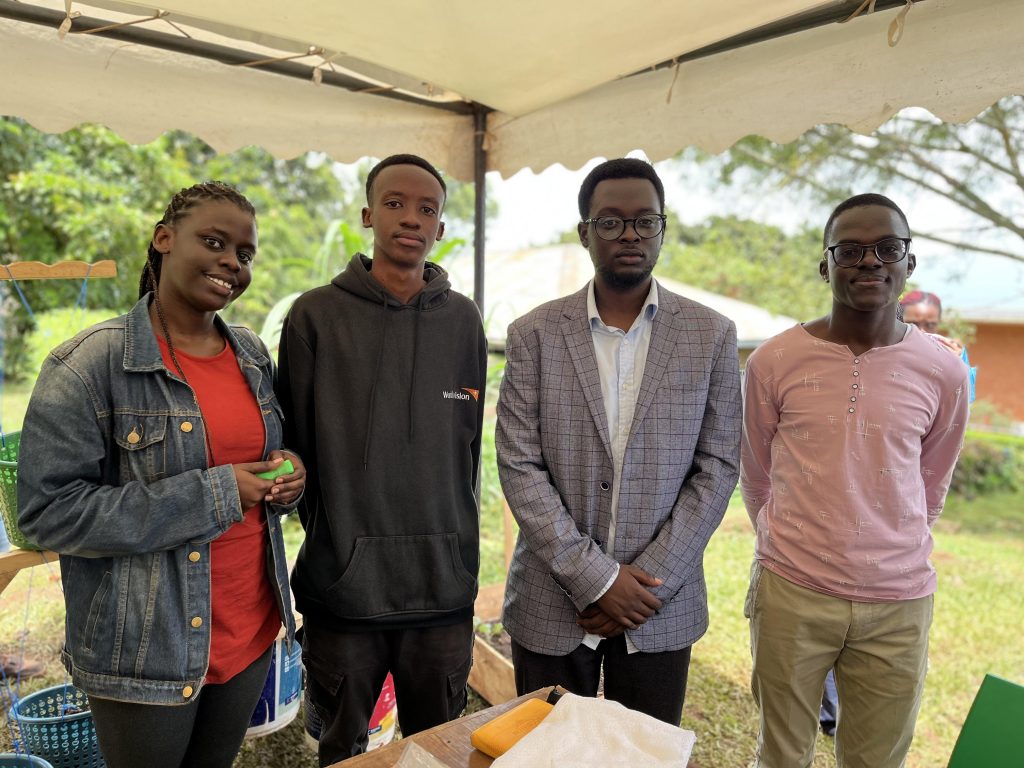By Agatha N Biira
Developing students’ innovation competence is becoming increasingly important in higher education, yet few studies have actually investigated whether current learning environments are aimed at promoting this competence and whether students perceive that they have mastered it.
When Aston Aryamanya joined Uganda Christian University (UCU) to pursue a Bachelor of Entrepreneurship and Project Planning, he found that the course was more theoretical than practical.
After graduating, he was given an opportunity to teach at the university. “I used it as an opportunity to influence the management to see how we can change the teaching and delivery of entrepreneurship,” Aryamanya said. “We believe that if someone is studying entrepreneurship and wants to be an entrepreneur, they cannot do it only on paper.”
So, with his other colleagues, they pioneered practical learning in the entrepreneurship course with the aim of equipping students with skills. Starting off by including something practical during classes, the idea was later adopted by the school management.
In a bid to support students and equip them with entrepreneurial skills, UCU, in partnership with Hanze University of Applied Sciences in the Netherlands, launched the Incubation Hub in 2020. The hub is open to all students at UCU, not just those at the school of business.
The school of business held the Easter semester exhibition at the incubator hub next to the Honors College, UCU. Some of the items that the students exhibited included tomato paste, fertilizer, aftershave, hair oil, art, a solar-charging phone case, and many more.

Patricia Kayompatho, a student at UCU pursuing a Bachelor of Tourism and Hospitality and also a wildlife and nature photographer, showcased some of the pictures she has taken during the annual trips they have as a class.
“People can only understand the beauty of tourism when they see pictures. It is also a way to motivate people to travel and have a feel of the different tourist attractions,” she said.
Jenissi Mukisa and Shanita Nabulya, both third-year students of tourism and hospitality management at UCU, make art pieces out of materials people throw away or consider “useless.”
“We are in an industry where beauty is what gets more tourists. This is our way of beautifying spaces. What we make can be used as paintings, wall hangings, and also souvenirs,” Mukisa said.
Esther Nabwire, a second-year student pursuing a Bachelor of Human Resource, and her team came up with panty props, period underwear meant to improve ladies’ health. “It helps to position and keep sanitary towels in one place. It also reduces the skin irritation caused by pads,” she said.
The incubation hub is still something many students haven’t picked up on. Aryamanya says that after the exhibition, students with potential projects and those who feel like they want to expand their projects are selected.
“We give them support in the hub by helping them with marketing, costing, and market research. After that, we are sure they can have standing businesses out there,” he said.
Besides showcasing finished products, students also presented their concepts. The team “Photoncharge” has an idea for making a solar-charging phone case. “It all started as a coursework project. We wanted something unique, but if we got funding, we could bring the idea to life,” Devine Ainembabazi said.

Asked how the school helps students with only concepts, Aryamanya said their major aim is for students to get feedback on their ideas and find ways of improving the product.
“Research is expensive. Instead of sending students to the field to get information, we set up this event to bring people here so that they can get the information for free,” he said. “After getting feedback, they decide whether they want to take the idea to another level, and for those that do, they register with the hub.”
Benard Ariaka, a second-year student pursuing a Bachelor of Science in Accounting and Finance at UCU, said the hub has equipped him with a lot of skills. “I was totally blank about business before joining the hub. But I have learned how to use the local resources around me to come up with products that solve problems in society,” he said.
The hub also has partnerships with different institutions, such as Agripreneurship Allowance, a Switzerland-based company that gives them $2000 (Ugx sh 7,580,000) every year to support business development. “We are also rolling out loans from Hanze University to students to help them develop their potential ideas,” Aryamanya said.
The Dean of the School of Business, Vincent Kisenyi, said they emphasize mindset change at the school. “One of the things we advocate for is for students to be able to generate an idea and work towards transforming it into something that can help them earn money,” he said.
“If a student can do this, chances are that when they step out, they will be able to interact with their environment and turn even smaller ideas into bigger ones.”


